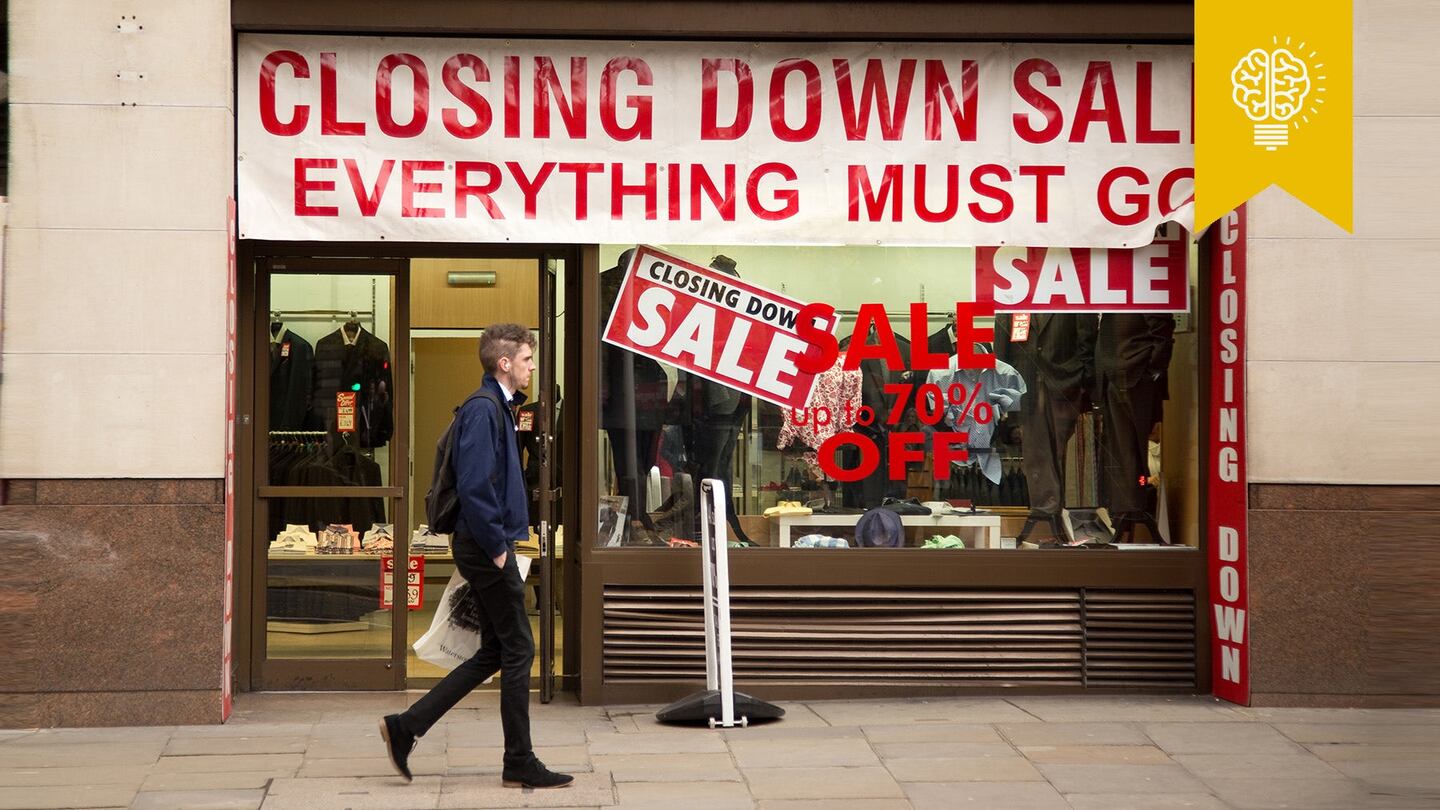
The Business of Fashion
Agenda-setting intelligence, analysis and advice for the global fashion community.

Agenda-setting intelligence, analysis and advice for the global fashion community.

SAN FRANCISCO, United States — Early in her career as a stock market analyst, Kirsten Green took a quantitative lens on the retail market. But seeing the rise of shopping malls and the growing spending power of teenagers, she realised there was more to retail than numbers.
“So much of it was driven by human emotions,” Green recalls, sitting in a conference room at Forerunner Ventures, her retail and commerce-focused venture capital firm, which has placed bets on a host of upstarts from Warby Parker and Away to Glossier and Stadium Goods. Some of her most successful exits have been Jet (acquired by Walmart for $3.3 billion) and Dollar Shave Club (acquired by Unilever for $1 billion).
She says she is looking for companies who can leverage new technologies to deliver a powerful customer experience. “Having a great product with a strong value proposition in terms of price, quality, cachet and usability is table stakes. Winning over people is about delivering a great experience,” she explains.
Winning over people is about delivering a great experience.
Green is also drawn to companies with a sense of social purpose, such as 11 Honoré, which offers designer clothes to plus-sized women; Hims, a health and beauty company for men; and Reformation, which makes sustainable clothing and accessories. She also frequently invests in female-led companies, including ShopShops, Birdies and Outdoor Voices, and joined other venture capitalists to form All Raise, a non-profit organisation founded by 34 senior female investors dedicated to “diversity in funders and founders.”
ADVERTISEMENT
But alongside the rise of next-generation companies, Green sees what she calls a “retail reckoning” for legacy players that can’t adapt quickly enough to a fast-moving market.
“There are companies that have built big meaningful businesses with huge brand-name recognition,” she says. “But you can't just switch your entire CRM system overnight. You can’t go back and get data that was available to you, but you haven’t been collecting for 20 years. Do they simply have to go away and someone else takes their space, or do they find other people to partner with and slowly transition?”
Here is Green’s guide for surviving the “retail reckoning.”
1. Customers (Still) Want Experience
Although retail channels have changed, the reason people enjoy shopping hasn’t.
“Twenty years ago, you went to the mall for entertainment and to meet up with your friends. But it was also a place where you purchased. Now, you don't need to go to the store, but people still want to go because there’s an element of socialising and entertainment. Having a great product with a strong value proposition in terms of price, quality, cachet and usability is table stakes. Winning over people is about delivering a great experience. With the ubiquity of Amazon, where you can access everything with two clicks, shopping has lost its soul and there’s no fun in the experience. It’s so far from where we started, but now we’ve got all these ingredients and the stage is set to help the shopping experience come full circle.”

Forerunner Ventures' Kirsten Green | Source: Courtesy
2. Build Brands Like People
ADVERTISEMENT
In a multi-channel world, a brand’s personality must be as multi-dimensional as people.
“I think about brands not too differently than I think about relationships with people. They are dynamic, but there's a framework. We all form a set of expectations around certain people and ways of interacting with them; it could be the friend you meet dropping your kids off at school or a business associate. In all these different venues, I’m showing up as Kirsten and I’ve got to be a version of myself that still ties to who I am deep down, and that's what companies need to do now. They are in my Instagram feed, in my mailbox, they’re online, so it's become so much more layered. Having a logo and a tagline is not enough.”
3. Cultivate Ecosystems, Not Islands
Imagine the experience you want to deliver, then partner with experts to put it together.
“I've been involved in companies where, at the time, we thought the best decision was to build our own tech systems, but now, we're never going to have the best XYZ functionality — we're not going to make checkout payments as easy as Stripe, for example. Instead, imagine the experience you want to deliver to the customer and the product that supports that, and then go out and find the experts and architecture to put it together. Underpinning that is the power of ecosystems. That's one of the powers that our society has recognised with technology; people want to be part of networks, because it's increasingly hard to succeed in a world that's fast-changing and you need to be more things to more people.”
4. Make Your Own Playbook
What works for one brand isn’t going to work for another.
"Trying to be like the person next to you has never been a winning formula for life and it's not a winning formula for business, either. I don't think somebody can look at Glossier and just do what Glossier is doing. Founder Emily Weiss and the team that she's built are on a journey with the customer, or they're one step ahead of them with the customer in mind. So, when they say they want to do a San Francisco pop-up store in a fried chicken shop, we think, 'Thank goodness we have a founder who is creative!' And there were lines out the door the entire time. That's part of what makes these companies successful. They have their own way of navigating a complex matrix."
ADVERTISEMENT
5. Beauty is a Cultural Barometer
From technology innovation to inclusivity, look to beauty to stay ahead of the curve.
“Beauty is interesting because it plays into [cultural topics such as racial diversity and gender inclusion], which makes it a bigger part of the conversation. It is personal and individual and playful, and it gets pulled into health and wellness. It plays well in all of the different ecosystems where people are conversing, and there is the ability to share video tutorials and aspirational imagery on social channels. Product innovation keeps happening because of a relatively accessible price point and a continued evolution of promises. People always want to experiment with things, so that keeps the conversation moving forward.”
Related Articles:
[ The Top 10 M&A Targets in Fashion and LuxuryOpens in new window ]
[ The Top 15 M&A Targets in BeautyOpens in new window ]
[ How Not To Ruin Your Brand Once You’ve Sold ItOpens in new window ]
In 2020, like many companies, the $50 billion yoga apparel brand created a new department to improve internal diversity and inclusion, and to create a more equitable playing field for minorities. In interviews with BoF, 14 current and former employees said things only got worse.
For fashion’s private market investors, deal-making may provide less-than-ideal returns and raise questions about the long-term value creation opportunities across parts of the fashion industry, reports The State of Fashion 2024.
A blockbuster public listing should clear the way for other brands to try their luck. That, plus LVMH results and what else to watch for in the coming week.
L Catterton, the private-equity firm with close ties to LVMH and Bernard Arnault that’s preparing to take Birkenstock public, has become an investment giant in the consumer-goods space, with stakes in companies selling everything from fashion to pet food to tacos.